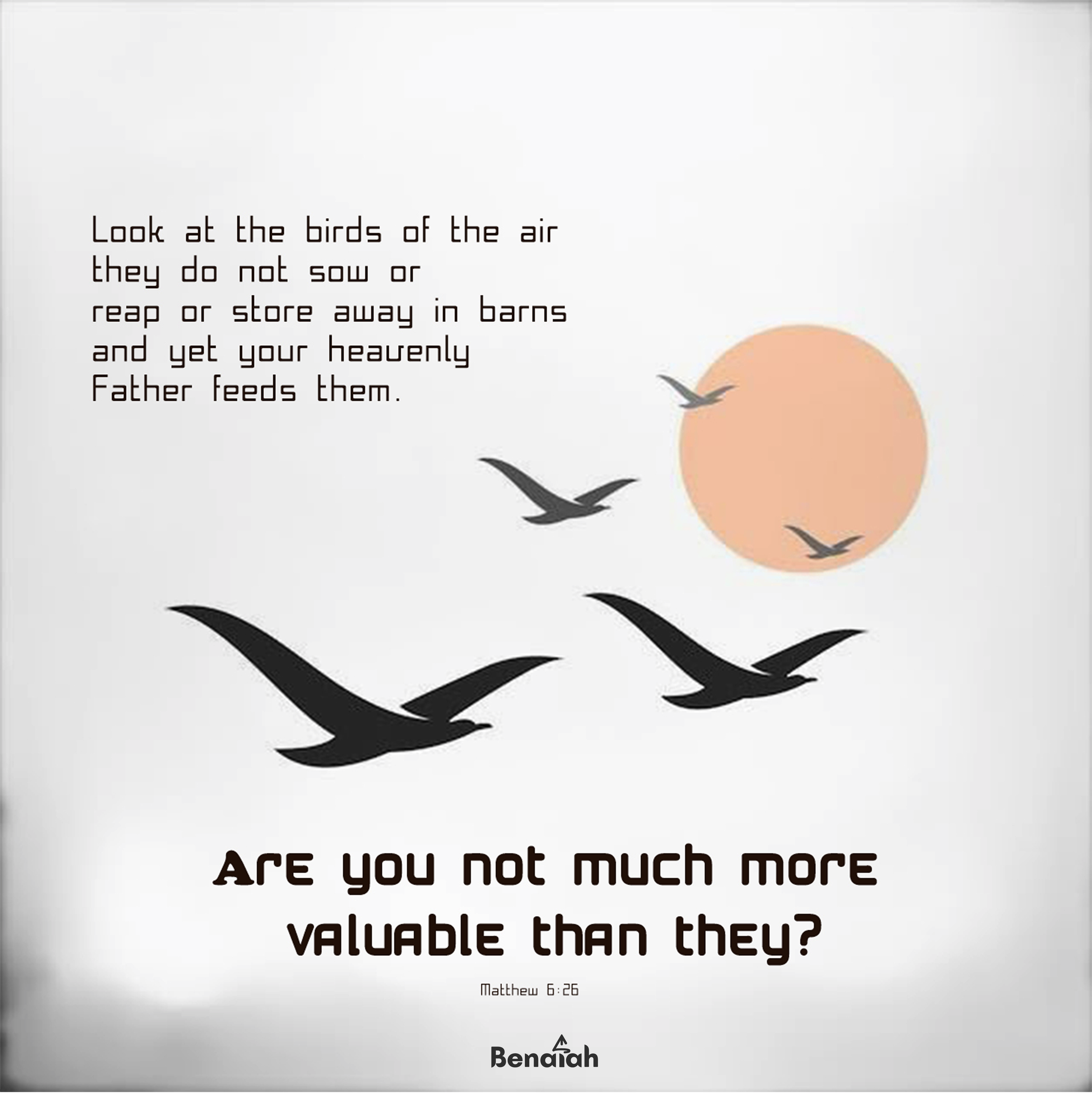.DR7OotV0.png)
In the middle of life’s hardships, when doubts and tribulations cascade over us, does God really see us? And if He is truly a good and caring God, why does all this evil happen to us? Do we really have the courage and strength to keep moving forward and push through it all? Yes Jehovah-Jireh, the One who provides and is strong enough to hold and carry us through the trials, is more than enough for everything.
For the first time, in Genesis 22:14, this name was revealed to Abraham, boldly showcasing God’s nature. The name Jehovah Jireh (Yahweh Yireh) comes from Hebrew words, where (Jehovah) means “Lord,” and ”Jireh” means “to see” or “to provide.” so it can be translated as “God provides” or “God sees”. This name reflects God’s omniscience (all-knowing), omnipotence (all-powerful), and omnibenevolence (kindness and generosity). He assures us of His ability (power) and willingness to fulfill all our needs. By studying God’s providence, we come across many biblical teachings that reflect His greatness and goodness, enriching our spiritual understanding and practical unity.
Sovereignty is the foundational nature of God that holds His providence together. Sovereignty is not only limited to Him creating the universe; it also involves sustaining and guiding it toward its purpose. He is not a distant observer of humanity, but the owner of the story of human nature and a sustainer who leads to His true goal.
The relationship between human responsibility and God’s sovereignty is one of the deep mysteries of the Bible. “He changes times and seasons; He deposes kings and raises up others; He gives wisdom to the wise and knowledge to the discerning.”(Daniel 2:21) . “The lot is cast into the lap, but its every decision is from the Lord.” (Proverbs 16:33). There is no event, not even the smallest moment in our life, that happens outside of His will.
The omnipotent strength of God, the unfathomable wisdom, and His boundless goodness are revealed through His providence. This serves as a foundation for understanding the vastness of God’s providential hand, encompassing not only the life of His people but also all of creation. The psalmist sang, ”The Lord has established His throne in heaven, and His kingdom rules over all” (Psalm 103:19), affirming this truth. This governance of sovereignty is not only confined to the big picture of the story of a man but it also governs the smallest details of our life.
This paradox is vividly illustrated in the story of Joseph, where God’s providence is clearly displayed. Joseph’s brothers, by conspiring against him, and by lying about his death to Jacob, are guilty (Genesis 37). His brothers took him out from the pit where they had thrown him to sell him to the Midianite traders. He was sold to the Ishmaelites for twenty shekels of silver. The Ishmaelites then took him to Egypt and sold him to Potiphar, the captain of Pharaoh’s guard. But then, Joseph found favor in the sight of Potiphar. However, it didn’t last; he was imprisoned because of Potiphar’s wife’s plot. While in prison, Yahweh gave him favor in the sight of the prison warden, and while there, he was made lord over the prisoners. The chief cupbearer and the chief baker of Pharaoh were also imprisoned. One night, both chiefs had a dream, and Joseph interpreted their dreams for them, and the dreams came to pass just as he had interpreted them. However, the chief cupbearer did not remember Joseph. Two years later, when Pharaoh had a dream that needed interpretation, the chief cupbearer remembered Joseph. Joseph then interpreted the dream for Pharaoh, revealing that there would be seven years of plenty followed by seven years of famine. As a result, Pharaoh appointed Joseph as the overseer of his household. During the years of famine, Israel was saved from starvation due to Joseph’s wisdom in storing food. This event also fulfilled God’s promise made to Abraham that his descendants would go into captivity for 400 years, a prophecy that also signified the eventual deliverance of Israel. Understanding this, Joseph said to his brothers, ‘You intended to harm me, but God intended it for good to accomplish what is now being done, the saving of many lives’ (Genesis 50:20).
Therefore, Yahweh is not far from the history of man and does not carry out His will by forcing people. Instead, as the supreme God, He uses the actions and nature of people to fulfill His own plans. The decisions made by each human are ultimately guided by God’s redemptive plan, which leads to salvation.
“All things are from Him, through Him, and for Him; to Him be the glory forever. Amen.” (Romans 11:36). All things came from God, are upheld by God, and are ultimately directed toward God’s glory. Even though each person makes their decisions freely, these seemingly small decisions are part of God’s perfect and sovereign plan. Even in the evil actions and decisions of people, Yahweh can bring about good.
By believing in Yahweh’s providence, we find peace in His control over all things. Even when faced with adversity and challenges, understanding that God works everything for our good allows us to remain patient and hopeful in trials. In times of trials, we persevere and fill ourselves with gratitude and praise. When we trust in Yahweh’s providence, we find comfort. Instead of complaining, we choose to rest in His wisdom, knowing that His plans are always for our ultimate good.
Our God is a good-hearted King who listens and fulfills all that He has promised. Psalm 145:18 (NIV) says, “The Lord is near to all who call on Him, to all who call on Him in truth.” God is nearer than our very breath (Jeremiah 23:23-24). He hears us — not as one who delights in our suffering, but as one who delights in our prayers. He is a God who listens, not to mock us, but to answer our prayers. His love is unfailing, and His faithfulness endures forever. Even when we do not see immediate answers, we can trust that He is working behind the scenes for our good. In His perfect timing, He brings restoration, peace, and joy to those who call upon Him with sincere hearts.
My soul denied, my heart doubted, and my eyes believed the perception that I was left alone in the wilderness. It seemed as if God was on leave, leaving me to myself in my time of need. I wavered between the truth that seemed real and the undeniable reality of His providence and faithfulness. I wavered, not to alter an inch of the unshakable truth, yet faith was on a breaking ship — drowning, sinking. My soul denied, and my heart doubted, only to realize, deep within, that He is the one who chose. Chose to stand by me and now as I look back, I ask — does God fail? Has His power left Him? Has His love faded? I awaken my soul. I cling to the truth of His love — the love that provides, the love that stands firm by my side. Because I know, even now, in times of doubt and trial, He remains the God of providence.
Books:
Piper, John. Providence. Crossway, 2020.
R.C. Sproul, The Invisible Hand of God. Word Publishing, 1997.
Flavel, John. The Mystery of Providence. GLH Publishing, 2022.
Watson, Thomas. All things for Good. GLH Publishing, 1963.
Sermons:
Spurgeon, C. “Providence” [Video], sermon on Matthew 10:30 Sermons and Audio Books. (1858, April 11). Youtube, Providence! - Charles Spurgeon Sermon
Baucham, Voddie. “The Providence of God and People of Promise” [Audio] sermon on Exodus 1:1-7, Voddie Baucham Ministries, (April 6, 2014), https://www.voddiebaucham.org/sermons/the-providence-of-god-and-the-people-of-promise/.
Charles Spurgeon, “God’s Providence” sermon on Ezek. 1:15–19, Bible Bulletin Board, accessed (April 9, 2020), http://www.biblebb.com/files/spurgeon/3114.htm.
Thomas Derek, “The Providence of God” [Video] sermon on the book of job, American Gospel Tv, (Oct, 2021), https://www.watchagtv.com/most-comments/videos/jason-orl21-10

